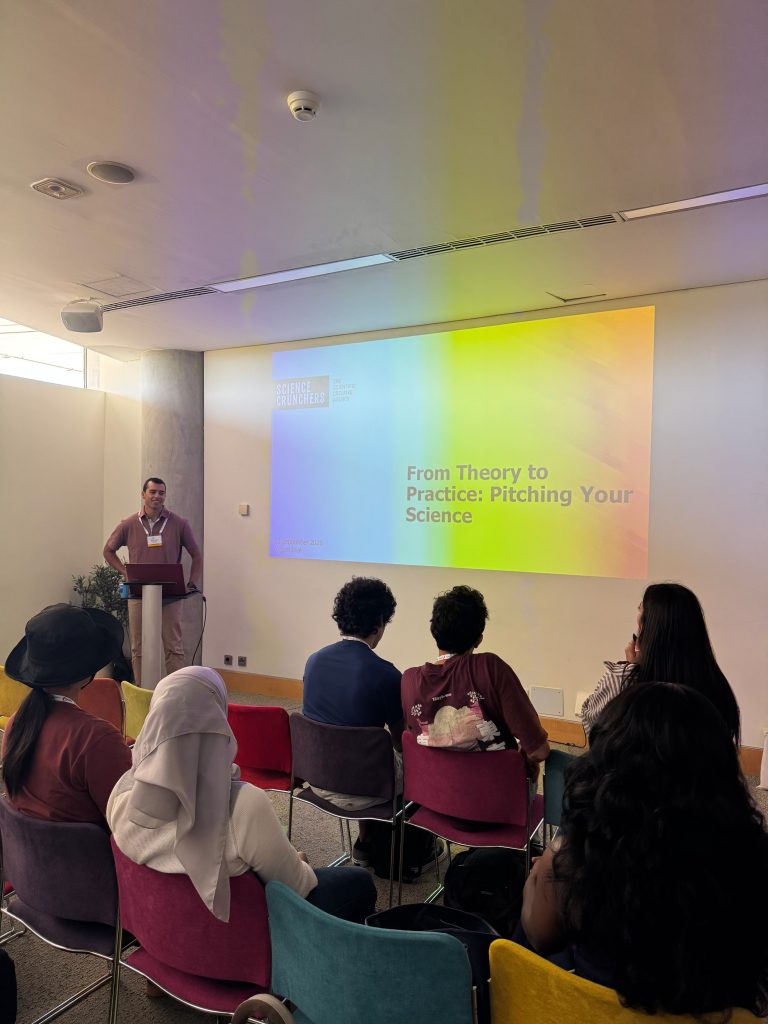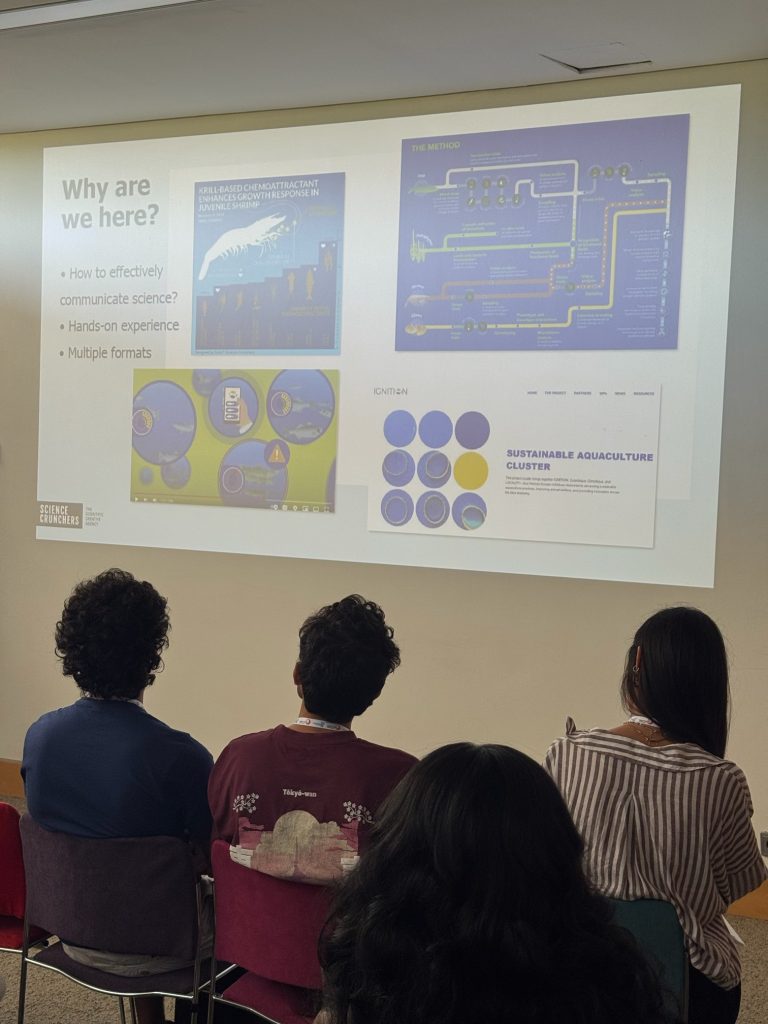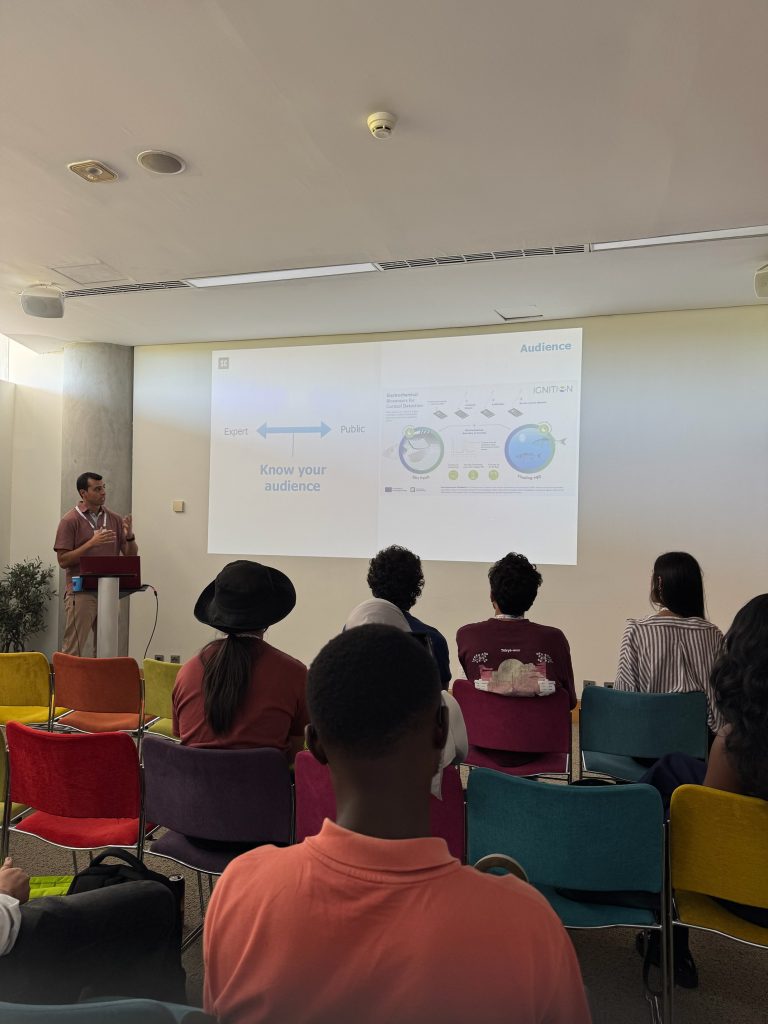The recent Aquaculture Europe 2025 conference, held in Valencia, Spain, brought together over 3,000 participants for a truly engaging experience. In parallel with the scientific program, a series of activities at the IGNITION booth and that of project partners SPAROS and RIASEARCH showcased the latest advancements in aquaculture research, technology, and education.
A noteworthy event was the workshop hosted by our communication partner, Science Crunchers, during the EAS Student Session. Titled “From Theory to Practice: Pitching Your Science”, this session was led by Miguel Leal and took place on September 22nd at 15:00. The workshop provided a platform for young scientists to refine their communication skills, with around 20 participants actively engaging in pitching their research in a way that resonates with diverse audiences. This hands-on session allowed attendees to gain valuable insight into translating complex scientific findings into accessible, compelling narratives.
At IGNITION’s Booth 55, visitors had the opportunity to explore the project’s key achievements through a variety of dynamic and interactive displays. From informative panels and engaging videos to handout infographics, the booth offered an immersive experience. Researchers were on hand to present their work and discuss the significant results of the IGNITION project, offering valuable insights into the future of sustainable aquaculture.
Partners SPAROS and RIASEARCH further expanded the project’s visibility at their own Booth 102. A key highlight was the presentation of IGNITION’s exciting new educational game—AQLUA! This Cluedo-style game set in an aquaculture facility invites players to solve puzzles related to sustainable practices and aquaculture management. Whether you were able to stop by and try it out or not, you can now download an A4-sized, home-printable version of the game in four languages directly from the IGNITION resources page.
The activities at AE2025 were a perfect demonstration of IGNITION’s commitment to not only advancing aquaculture science but also making that science accessible and engaging for a wider audience.





